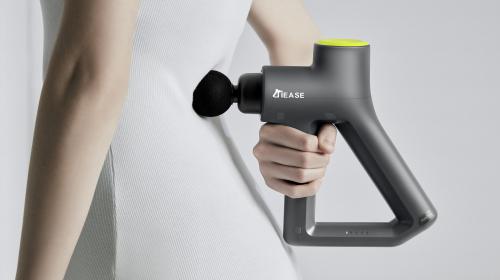
Personal Communication
Anywhere in the World
Communication device which connects to your smartphone, enabling you to use your phone when out of signal of standard networks all around the globe.
Unparalleled connectivity using satellite constellations
IDC worked closely with a leading company in satellite communication to develop this Satellite Phone Case. The device would connect to a global coverage of satellites providing access to voice and data services anywhere on Earth. Connecting people and devices in the world’s most remote places.
The Satellite Phone Case could be used as a hotspot for mobile phones to connect to the satellite network or used independently to contact pre-loaded numbers and make SOS calls in the event that the user's mobile device runs out of battery. The device users geolocation so users have more security that they can be found and rescued in emergency situations.

The Satellite Phone Case was made for adventurers and remote workers, keeping them connected to the rest of the world. The device would have military, search and rescue, aviation and nautical purposes, all of which have specific design requirements.

Iterative validation using IDC’s in-house modelling capabilities
IDC’s process is defined by creating products that function reliably in line with the needs of users. The process starts with sketch exploration, quickly ideating and
building a vision for the device to move forward.
The ideas generated are validated and tested using our in-house modelling
workshop. This ensures the best direction is taken at each step of the process.




Prototyping and testing to meet SAR safety requirements
One of the goals for the Satellite Phone Case project was to integrate the antenna into the main body so that the user could make calls without needing to extend
it.
Integrating the antenna came with problems for IDC to
solve. These antennas produce radiation due to their high-power output. Specific
absorption rate (SAR) testing was needed to ensure user safety given the
proximity of their head to the antenna. Test rigs were produced to adjust both
proximity and material properties to find a balance of product size,
performance and safety. Performance testing of the antenna was carried out in
an anechoic chamber prior to real world calls.



One of the key functionalities of the Satellite Phone Case was to hold the user’s smartphone. The device was designed to be used in extreme and fast paced scenarios and therefore the clamping mechanism needed to be strong and durable whilst offering an optimised user experience.




The Satellite Phone Case was equipped with an SOS button for emergency situations. The SOS alerts could be sent anytime, from anywhere in the world. They gave access to 24/7 emergency assistance in case a search and rescue mission was required.

Our involvement in developing the Satellite Phone Case:
- Detailed analysis of initial brief
- Competitor analysis
- Industrial design
- Colour, material and finish
- Prototyping
- Mechanical engineering
- Full CAD design for manufacture
- Safety & performance testing
- Tolerance stack analysis
- 2D Engineering drawings

Other Consumer Projects
Sign up to receive our top resources on product development and innovation.









